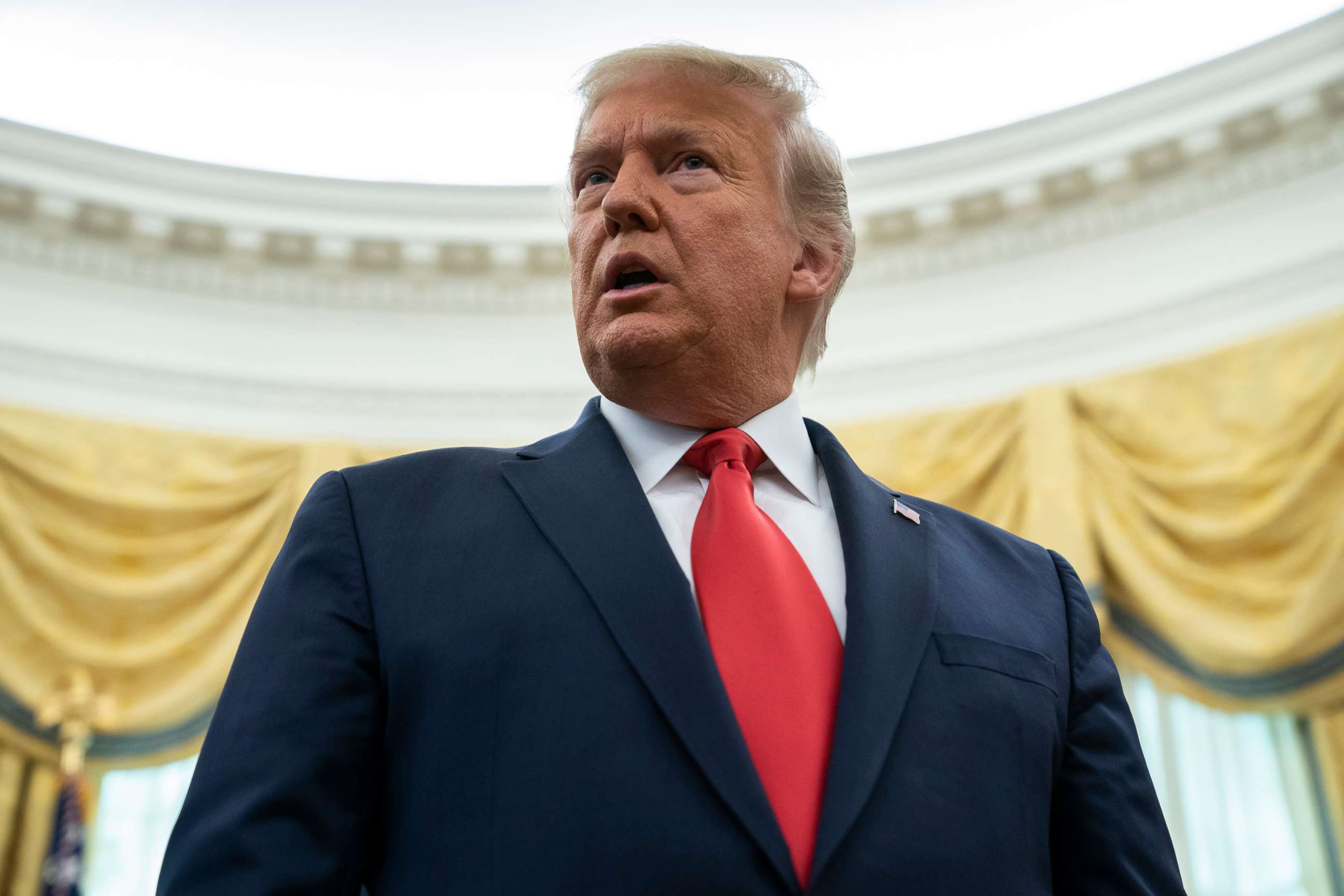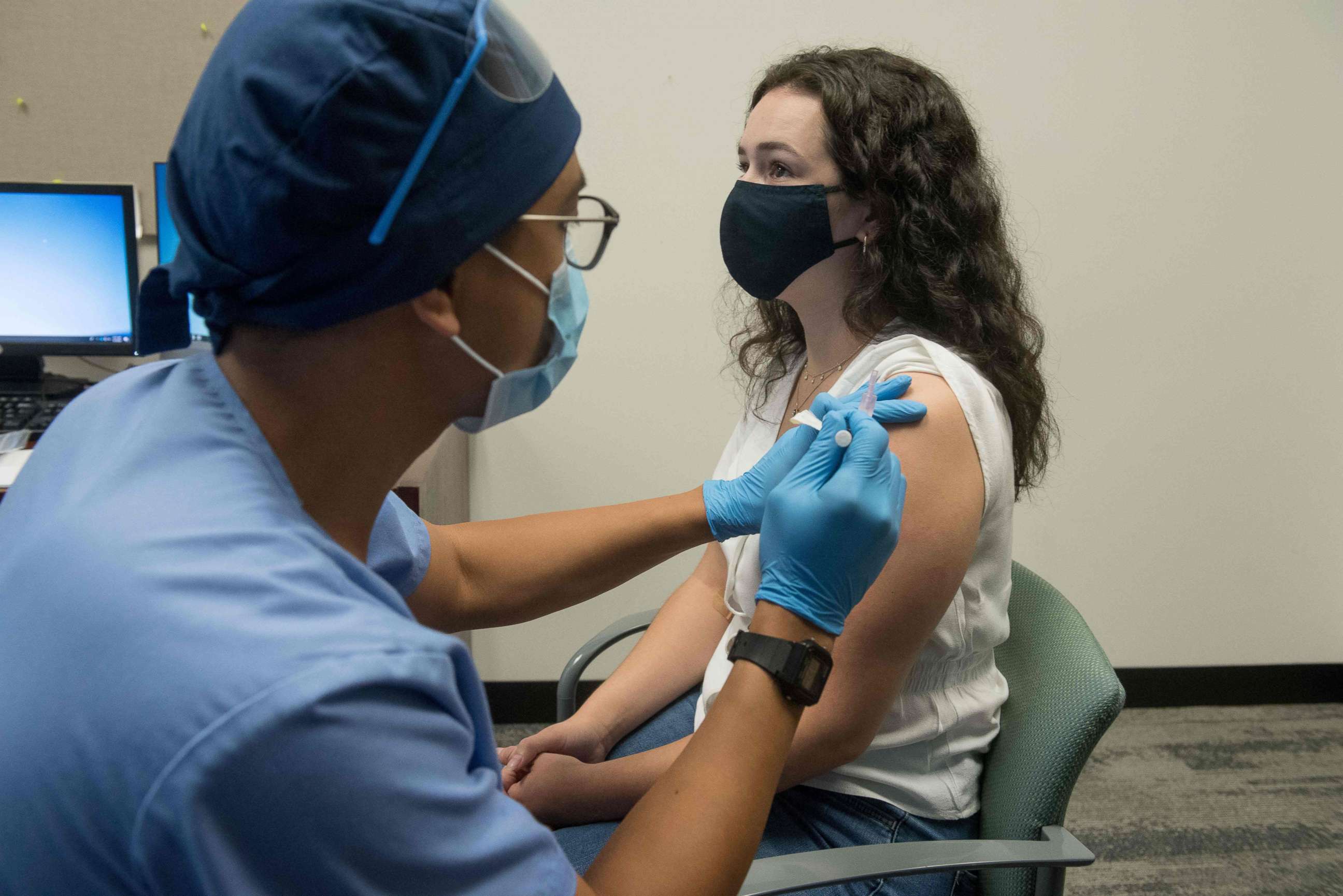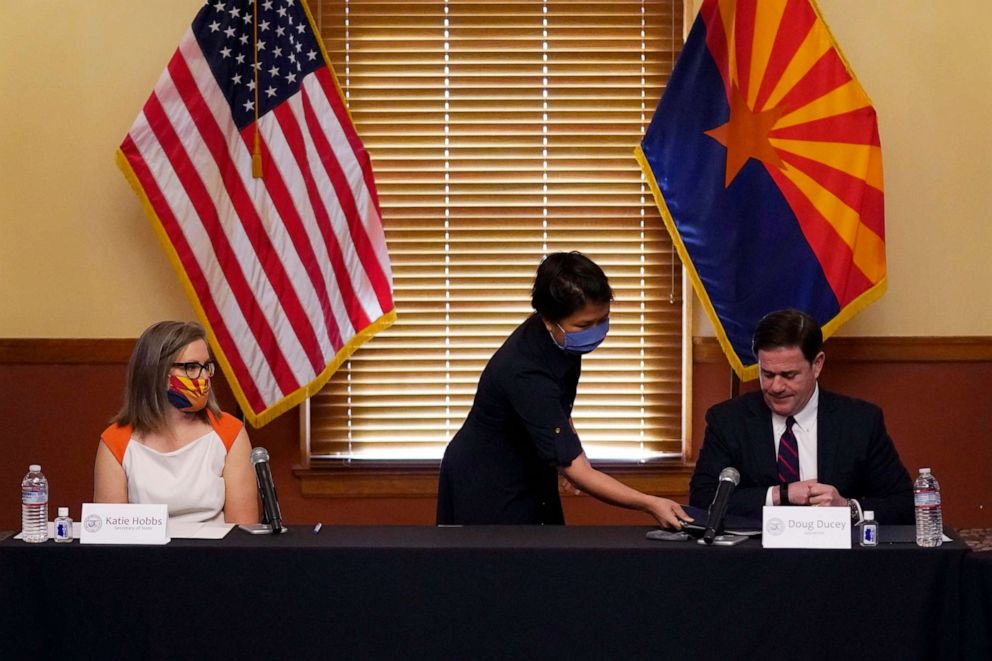The Note: Trump deepens GOP rifts as Georgia races heat up
Contradictions he's leaving the GOP to sort out will be more urgent than ever.
The TAKE with Rick Klein
If the Republican Party is at risk of a civil war, it's not clear what side President Donald Trump is on.
More specifically, he will be on his own side -- wherever that leaves his party. With action heating up in Georgia's run-off races Friday and through the weekend, the contradictions the president is leaving Republicans to sort out will be more urgent than ever.
Vice President Mike Pence will campaign in Georgia on Friday, while former President Barack Obama appears at a "virtual rally" with his party's Senate candidates and other prominent Democrats. Then, on Saturday, the president himself will be at his first major rally since the election, where he will make remarks his own allies can't guarantee will align with the GOP's broader goals.

About that election, the president has officially lost Georgia -- after his campaign requested another recount and despite Trump's efforts to rally his base against his own supporters who hold top offices in state government.
The president is now making noises about ousting his attorney general, William Barr, in his final weeks in office, after Barr said his office has not found evidence of criminal voter fraud. Some of those final weeks are being consumed by confrontations Trump is starting with his fellow Republicans on the annual defense bill and other year-ending legislation.
The private frustrations with the president are as real as they are predictable, particularly with control of the Senate on the line in Georgia.
Party leaders have long known their loyalty to Trump won't necessarily be rewarded. What's different now is that they know Trump won't be in office in a few weeks to deal with the consequences of his political actions.
The RUNDOWN with MaryAlice Parks
With all of the excitement about the potential for new vaccines, reassuring and persuading people to get in line could still be a significant challenge in this moment of extreme mistrust and political transition.
Polls have showed many Americans still hesitant. One-in-three Americans told Gallup that their main concern was how fast the vaccine was developed.
Carlos Del Rio, professor of medicine and global health at Emory University School of Medicine told ABC News last week, "Vaccinating 300 million Americans, when 50% of them are skeptical about the vaccine. And logistics are going to be really complicated. This is not going to be an easy vaccine to roll out."

So far this week, it's been bipartisan reassurance from Washington -- though the president has been consumed with election conspiracies and nearly mum on the pandemic.
Former Presidents Barack Obama, Bill Clinton and George W. Bush all said this week they would receive the vaccine publicly, if it would help prove its safety and encourage other Americans.
Ivanka Trump Thursday retweeted a story about the three former presidents' commitment and wrote, "My offer holds to do the same."
During an interview with CNN later in the day, Biden said he would be game for a live event as well. "When Dr. Fauci says we have a vaccine, that is safe, that's the moment in which I will stand before the public," Biden said.
The TIP with Kendall Karson
In a highly politicized environment, with a president refusing to concede and using multiple avenues to attempt to overturn the election results, every minuscule step of the process to formalize Biden's victory has taken on heightened significance, perhaps for the first time since 2000's contested election.
Next week is the all-important "safe harbor" date -- the deadline for states to certify a slate of electors to insulate them from challenges when presented to Congress in early January. Falling just six days before the electors are set to meet in their respective states, as mandated by federal law, governors from across the country often submit their "Certificates of Ascertainment" -- a formal missive advising both the National Archives and Congress of which electors the state appointed --before the electors vote.

Nearly two dozen states have submitted their certificates to the archives, including the critical states of Arizona, Georgia, Michigan, Pennsylvania and Wisconsin -- all of which are at the center of the president's efforts to overturn the will of the voters.
It's a clear sign that the process continues to move forward, despite the president's unprecedented post-election campaign to disrupt and protest at every turn. Even as his campaign's legal team challenges the results, sows doubt in the electoral system and directly pleas with state legislators to intervene to appoint their own pro-Trump electors, state and election officials are rebuffing those efforts and successfully doing their jobs.
THE PLAYLIST
ABC News' "Start Here" podcast. Friday morning's episode features ABC News' Trish Turner, who brings us the latest on negotiations for a potential bipartisan COVID-19 relief bill. ABC News Political Director Rick Klein previews President Donald Trump's trip to Georgia ahead of Senate runoff elections there. And ABC News' Jason Nathanson explains why Warner Brothers is putting all of their 2021 movies on a streaming service. http://apple.co/2HPocUL
FiveThirtyEight Politics Podcast. In the wake of the 2020 election, there's been plenty of discussion about the accuracy and usefulness of polling. Nationally, the polling error was about four points, which is close to the average polling error dating back to 1972. But the polls were significantly off in the Midwest and in Florida, where we've repeatedly seen larger than average errors underestimating Republicans recently. In this installment of the FiveThirtyEight Politics podcast, we hear from two A+ rated pollsters, J. Ann Selzer and Patrick Murray, about how they view the challenges of polling and what can be done about them. https://53eig.ht/3ol4Xmt
WHAT YOU NEED TO KNOW THIS WEEKEND
- President-elect Joe Biden receives the President's Daily Brief. Later, he delivers remarks in Wilmington, Delaware, on the final jobs report of 2020. After the remarks, Biden and Vice President-elect Kamala Harris will meet virtually with the National Association of Counties Board of Directors.
- Vice President Mike Pence will visit the Centers for Disease Control and Prevention's headquarters in Atlanta at 11:50 a.m. and lead a roundtable discussion on the COVID-19 vaccine progress and upcoming distribution. He will also join a rally for Sens. Kelly Loeffler and David Perdue in Savannah, Georgia, at 3 p.m.
- Former President Barack Obama will join a virtual get out the vote rally for Georgia Senate candidates Jon Ossoff and Raphael Warnock at 2:45 p.m.
- President Donald Trump participates in a rally for Republican Sens. Kelly Koeffler and David Perdue on Saturday, in Valdosta, Georgia, at 7 p.m.
- Republican Georgia Sen. Kelly Loeffler and Democratic Georgia Senate candidate Rev. Raphael Warnock will debate Sunday in Atlanta at 7 p.m.
- Sunday on ABC's "This Week": The Powerhouse Roundtable discusses all the week's politics with ABC News Chief White House Correspondent Jonathan Karl, ABC News Senior Congressional Correspondent Mary Bruce, former candidate for U.S. Senate, Dirt Road PAC Founder and Democratic National Committee Associate Chair Jaime Harrison, and Dispatch Staff Writer and CNN Political Analyst Sarah Isgur.
Download the ABC News app and select "The Note" as an item of interest to receive the day's sharpest political analysis.
The Note is a daily ABC News feature that highlights the day's top stories in politics. Please check back Monday for the latest.




